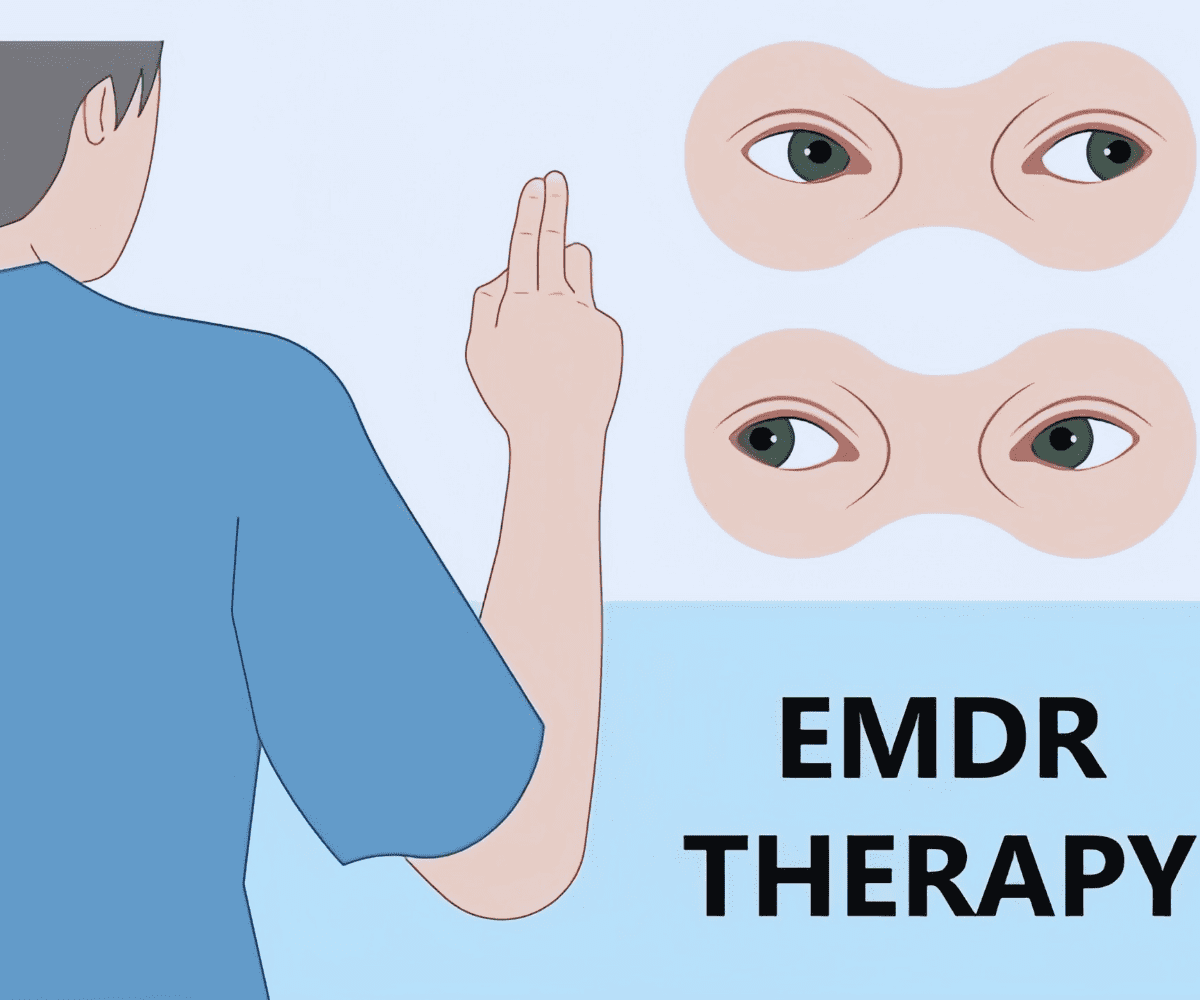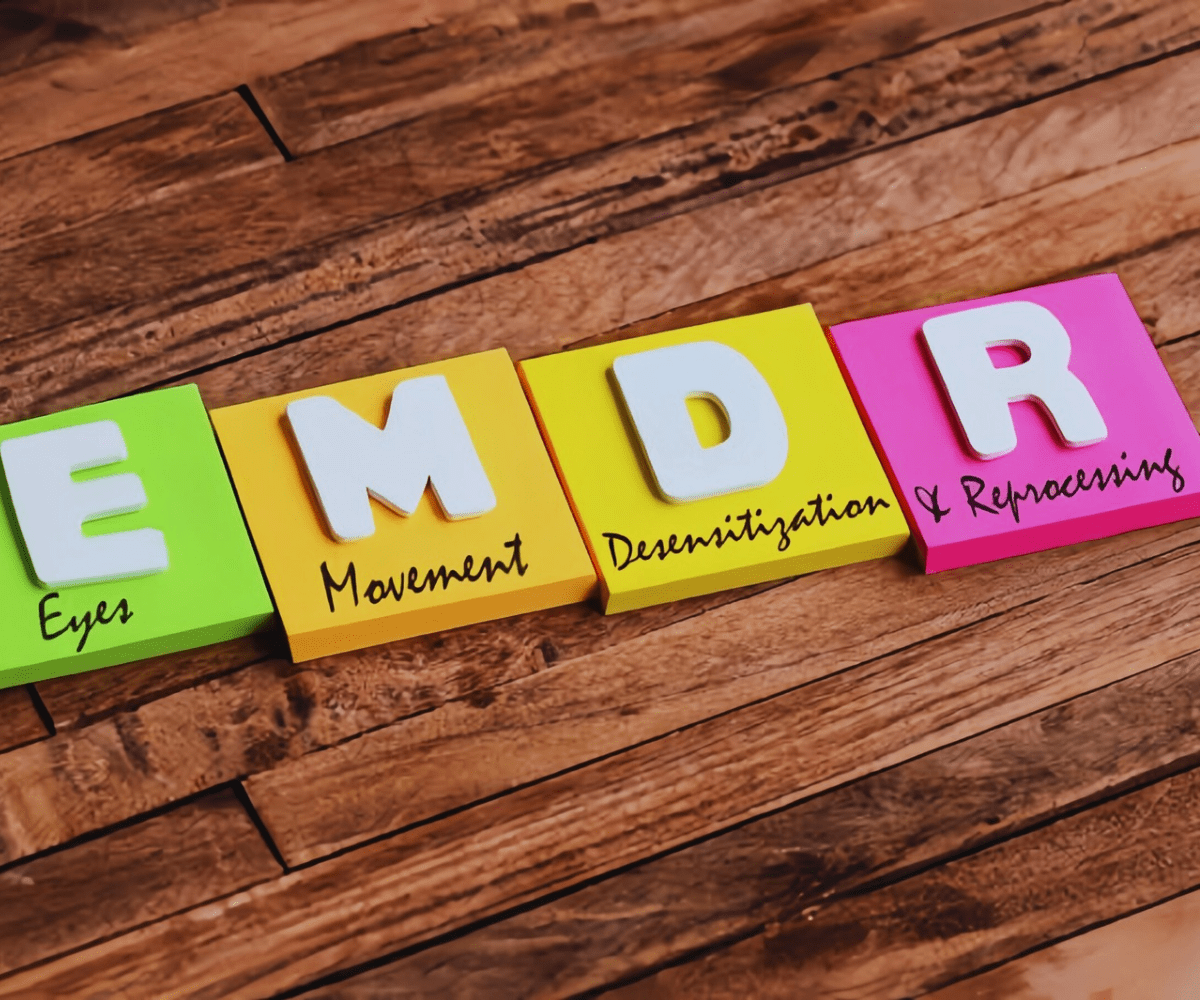EMDR ruined my life: Understanding the Potential Risks and Seeking Alternatives


In this guide, we’ll talk about EMDR therapy, which helps with things like trauma, anxiety, and feeling sad. Some people find it helpful, but it’s important to know that it might not be good for everyone. We’ll discuss the risks, understand why some people struggle with it, and suggest other ways to get help if EMDR doesn’t work well for you. Our aim is to help you choose the right kind of support for your mental health.
EMDR is a type of therapy made in the 1980s by Dr. Francine Shapiro. It thinks the brain can get better from bad feelings by doing special eye moves or other actions on both sides of the body, like tapping or listening to sounds.
In a session, the therapist helps the person do these eye moves or actions while they think about a bad memory. The idea is that this helps the brain deal with the memory better, so it’s not as upsetting anymore.
EMDR ruined my life-Potential Risks of EMDR
While EMDR can be an effective treatment for some individuals, it is important to be aware that there are potential risks associated with this therapy. Some of the potential risks include:
- EMDR can sometimes make people feel worse. Remembering and dealing with bad memories can be very upsetting. For some, it might even make things worse or make their problems stronger.
- Also, EMDR can make people feel more emotional. They might feel more anxious, sad, or even think about hurting themselves. This could be really hard for people who are already having a tough time with their feelings.
- Sometimes, EMDR might make someone feel like they’re not connected to their thoughts, feelings, or body. This can be a deeply unsettling and disorienting experience.
- Sometimes, EMDR therapy might make people think more negatively about themselves, the world, or where they fit in it.
- Physical Symptoms: EMDR has also been known to cause physical symptoms, such as headaches, nausea, and muscle tension.
Not everyone who tries EMDR will have these problems, but some might. It’s important to know about these risks before starting EMDR treatment.
EMDR ruined my life-EMDR therapy Affect
Some people find that EMDR therapy makes their life worse. It can be very upsetting and change their life a lot. This can affect how they feel mentally and physically. The reasons why EMDR therapy can be so bad for some people are complicated. It might be because of how their brain or feelings work, the bad things they’ve been through, or how the therapist does the therapy.
Sometimes, when people try EMDR therapy, it can make them feel even worse. They might feel more anxious, sad, or disconnected, and even get new physical problems. For those who feel like EMDR has made things worse, getting better can take a lot of time and effort. They might need to find special help, like therapy that understands trauma, to start feeling better.
EMDR ruined my life-Looking for Other Ways:


Trying Different Ways to Help with Trauma Since EMDR might have risks, it’s good to look into other ways to deal with trauma that might fit better. Some alternative approaches include:
- Somatic Therapy: Somatic therapy focuses on the connection between the body and the mind, and can be effective in addressing the physical and emotional aspects of trauma. This approach may involve techniques such as mindfulness, breathwork, and body-based exercises.
- Neurofeedback: Neurofeedback is a form of biofeedback that uses real-time displays of brain activity to teach self-regulation of brain function. This approach can be helpful in addressing the neurological effects of trauma.
- Trauma-Focused Cognitive-Behavioral Therapy (TF-CBT) is a proven way to help people deal with trauma. It helps them understand and cope with what happened to them.
- Other Options Instead of EMDR: You can try other ways instead of regular EMDR therapy. These can include methods like tapping or listening to sounds on both sides, or ways that focus on what you’re good at and how you can cope instead of thinking about bad memories.
It is important to work with a qualified mental health professional who is experienced in trauma-informed care and can help the individual explore the most appropriate treatment approach for their unique needs.
Conclusion
EMDR might help some people, but it’s important to know it can have risks. If EMDR hasn’t been good for you, look for other ways to deal with trauma that understand your needs. Learning about different options can help you start feeling better and taking control of your life again. With the right help, you can move past any bad effects of EMDR and become stronger and happier.
FAQs
What is EMDR and how does it work?
EMDR is a type of therapy that uses eye movements or other back-and-forth movements to help the brain deal with bad memories. It’s thought that this can make the feelings linked to the bad memories less strong.
What are the potential risks of EMDR?
EMDR can sometimes make things worse for some people. This includes feeling bad again, having more emotions, feeling disconnected, thinking negatively, and having physical issues. This might worry people who didn’t like EMDR before.
Why can EMDR “ruin” someone’s life?
EMDR can make some people feel really bad. They might start feeling more anxious, sad, or disconnected, and they might not know how to deal with these feelings. This could make their problems even worse, like feeling even more anxious or sad, and maybe even having new physical problems that make life harder.
What are some alternative trauma-informed approaches to EMDR?
“Some different approaches to helping people with trauma include:
– Somatic therapy (focusing on body sensations)
– Neurofeedback (using brain activity to calm the mind)
– Trauma-focused cognitive-behavioral therapy (TF-CBT) (changing thoughts and actions related to trauma)
– EMDR alternatives (new ways to process difficult memories)
These approaches focus on the person’s strengths and ability to cope, rather than dwelling on the traumatic memories.”
How can someone find the right treatment approach for their needs?
It is important to work with a qualified mental health professional who is experienced in trauma-informed care and can help the individual explore the most appropriate treatment approach for their unique needs. This may involve trying different approaches or combining multiple therapies to find the best fit.

